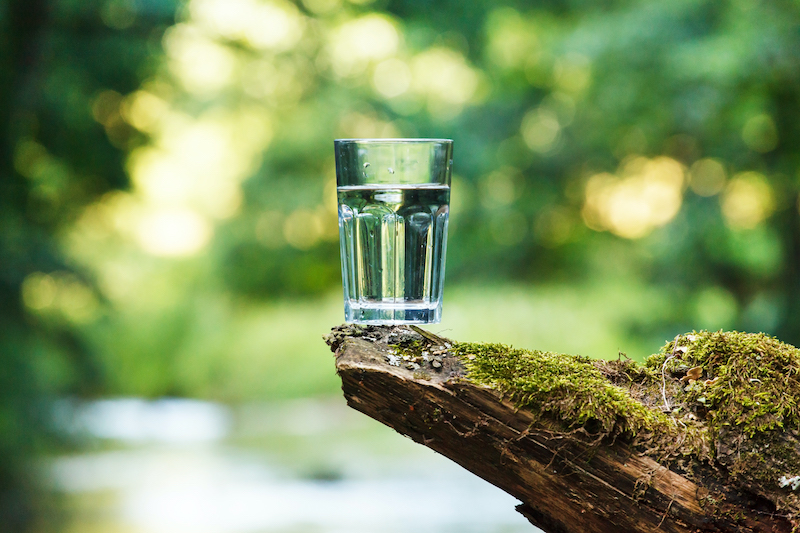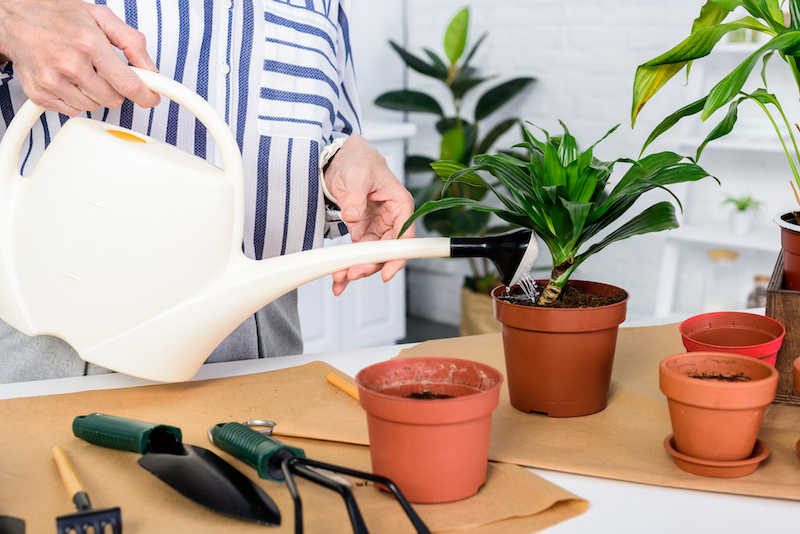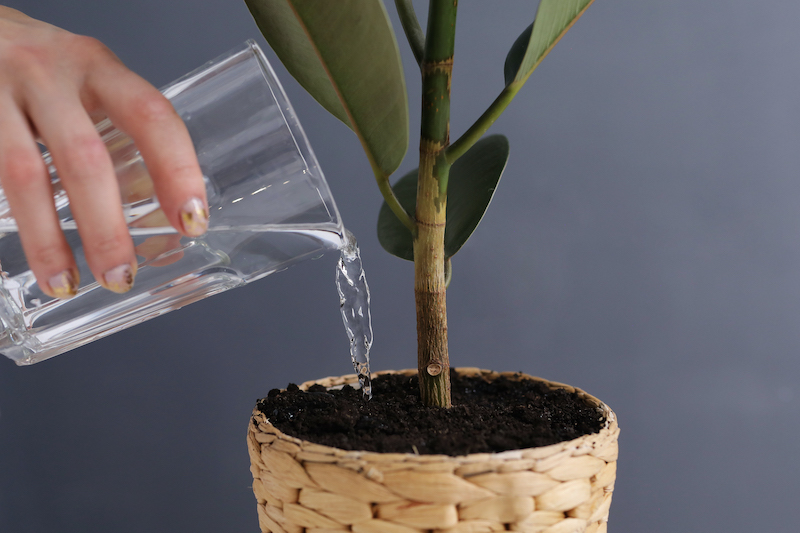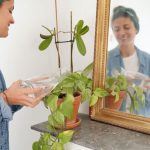When it comes to plants and houseplant watering, not all water is the same—or good. Read on to find out how to ensure your indoor plants grow and thrive with the right type of water.
Why does the type of water matter for watering plants?
We all know that all plants need water. But the type and quality of water you use is also an important factor to consider, especially if you are keen to see your houseplants be happy and healthy. Here we’ll cover the common types of water (rainwater, tap water, hard water and soft water), their effects on indoor plants, and what we consider the best water for houseplants to be.
Is rainwater or tap water the best water for indoor plants?

Rainwater tends to be purer than tap water, making it the best choice of water. It often picks up particles in the atmosphere and offers nutrients for the soil that tap water does not have. You can collect rainwater using an empty container or barrel, and in wintertime you can collect snow and store it in container bins to let it thaw. Rainwater tanks in the backyard provide a great source of water for your houseplants.
Tap water contains salts, minerals and treatment chemicals that may build up in your houseplant soil. Ideally filtered or distilled tap water is better than straight tap water as it doesn’t contain the chemicals that unfiltered water has. That said, most plants tolerate regular tap water, and for many indoor gardeners this may be the best water for houseplants given that it’s practical and always available.
There are some plants that are sensitive and react negatively to the chemicals found in tap water. Houseplants with long, slender leaves, like the spider plant, get stressed by fluoride. Orchids and carnivorous plants such as the Venus flytrap are particularly sensitive to tap water and should be watered with distilled or rainwater instead.
The pH level in tap water is also a consideration. Acid-loving plants such as orchids and African violets don’t take well to city tap water, which is typically treated to be slightly alkaline to prevent metal pipes from leaching or corroding.
Chlorinated and fluoridated water
Tap water in most states contains fluoride and chlorine, which are used to kill diseases. However, they build up in soil and affect sensitive houseplants and their growth.
You can fix this, however, by letting the water sit out for at least 24 hours at room temperature in an open pitcher. This allows it to “breathe”, essentially letting the fluoride and chlorine gases evaporate and become safer to use on your houseplants.
Plants will still generally grow when watered with chlorinated or fluoridated tap water, but you won’t get the same results. These chemicals inhibit the uptake of nutrients and therefore reduce plant health and growth.
What’s the best water for houseplants, hard water or soft water?

Around 85% of US households have hard water from the public system, while the remaining 15% have naturally occurring soft water. The term ‘hard’ implies that the water contains high levels of minerals after ‘soft’ water flows through the ground and picks them up from the soil.
Hard water contains calcium and magnesium carbonate salts, and, in the right amount, is the best water for indoor plants. Be sure to look for signs of stunted growth though, as very high levels of these minerals can hurt sensitive plants.
It’s okay to use soft water on your plants, but don’t water them exclusively with it. Most water softeners contain high levels of sodium chloride, which is great for making your dishes and clothes cleaner, but the downside is that it builds up in soil and causes plant growth problems.
Water temperature for watering plants
Regardless of what kind of water you use for houseplant watering, make sure it’s at tepid or room temperature. This avoids stressing your plants’ root systems. Some tropical plants can get a chill from very cold water and it damages their roots.It’s a good idea to do some research and find out the best water for houseplants specific to your indoor garden, and if they have any particular water requirements or preferences.

Our verdict
Watering indoor plants may seem like a simple matter, but different types of water have varying effects depending on their properties and the presence of certain chemicals or minerals. In a nutshell:
- Hard water is better than soft water
- Filtered/distilled tap water is better than straight tap water
- Rainwater is better than tap water
Ultimately, the best water for houseplants comes down to the quality of water and its suitability for your particular indoor plants. You can always boost the value of the water you are giving your houseplants with the addition of a liquid seaweed product to your normal water every few weeks. This is a great tonic for your plants and acts as a soil conditioner helping fine roots to grow.



